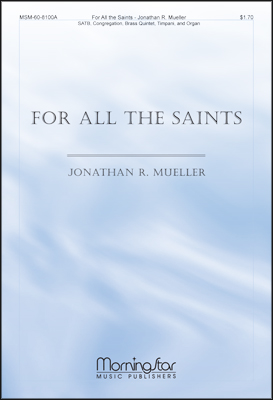Singing the New Testament #151
Display Title: God's Paschal Lamb (Christ Our Passover) First Line: God's Paschal Lamb is sacrificed for us Tune Title: SINE NOMINE Author: Carl P. Daw, Jr. Meter: 10.10.10.8 Scripture: 1 Corinthians 5:7-8 Date: 2008
Singing the New Testament #151


 My Starred Hymns
My Starred Hymns







